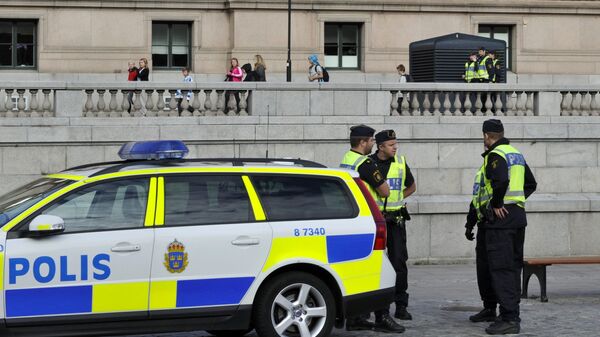Additionally, the Migration Board also proposed fishing for information on social media about asylum seekers regardless of whether or not there are allegations of war crimes or security threats, which is the established practice nowadays, Swedish national broadcaster SVT reported.
According to Per Löwenberg of the national border police, 60 percent of asylum seekers managed to produce some kind of ID at the start of the asylum process in 2016. However, there is no absolute requirement for applicants to prove their identity to get asylum. The identification request may be lifted once the applicants face mortal danger in their home country or may put themselves in danger by merely contacting the authorities.
"This shouldn't be allowed to happen. You should only have one identity and that identity should be linked to biometrics like fingerprints," a fuming Swedish Interior Minister Anders Ygeman said, as quoted by Swedish newspaper Helsinborgs Dagblad.
An established identity is a prerequisite for rejected asylum seekers to be returned to their respective home countries. By the Migration Board's recent estimates, no less than 88,000 return decisions will be taken during the period 2016-2018. Half of the rejects are expected to return voluntarily. So far in 2016, around 18,000 asylum seekers have returned to their home countries from Sweden. Of those, some 2,400 had to be deported forcibly.
"Primarily it is important to show that you can't choose for yourself, while at the same time encouraging people to return voluntarily," Anders Ygeman said.
In another apparent "setback" for human rights activists, Swedish police were recently green-lit to install surveillance cameras in Rinkeby and Tensta, Stockholm's most nefarious suburbs and hotbeds of crime, both noted for an overwhelming concentration of people of immigrant descent. Police sought to put up surveillance cameras since 2013, but their efforts were stopped by the Data Inspectorate as "restricting citizens' integrity." Police countered that the benefits of surveillance clearly overshadowed privacy risks.
"This place is particularly affected in many ways, with many serious crimes occurring," Rinkeby police officer Niclas Andersson told Swedish national broadcaster SVT, citing the possibility of using surveillance data in court in addition to crime prevention.





